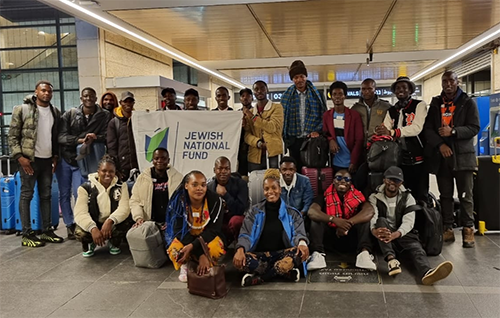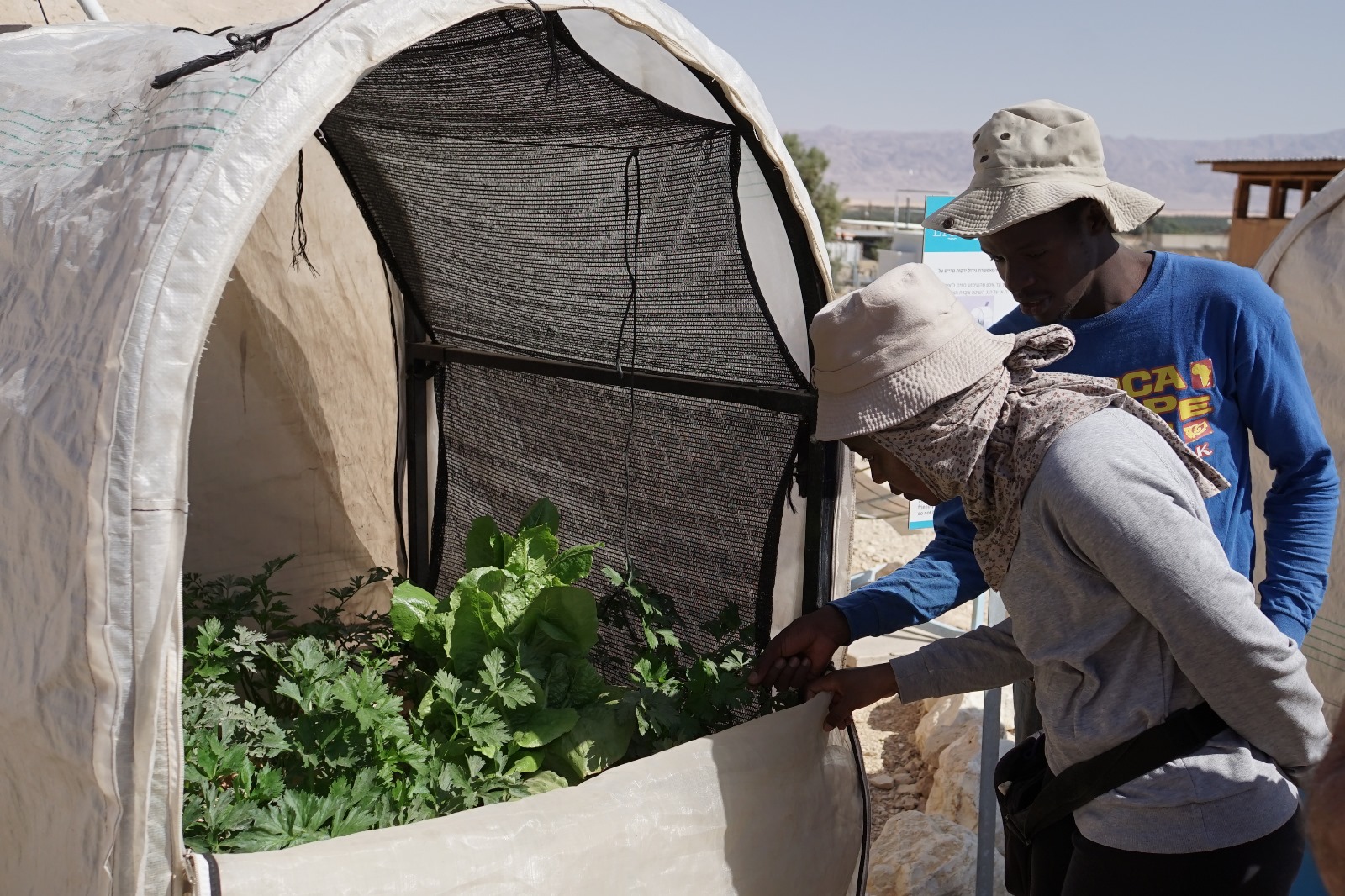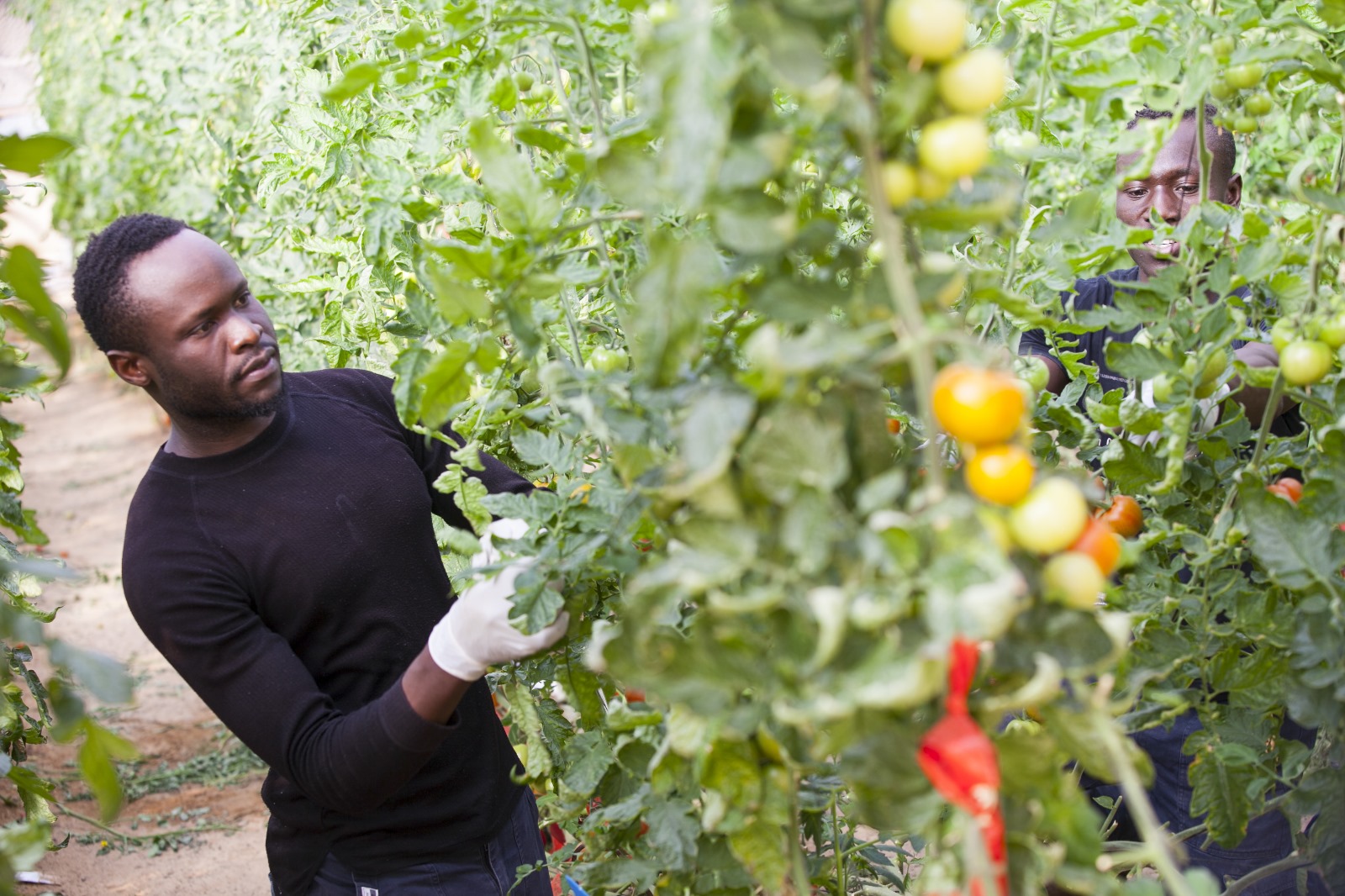By Tania Shalom Michaelian
From Nairobi to the Negev, a unique Jewish National Fund-USA-supported initiative is fostering a different form of diplomacy through agriculture and Tikkun Olam.
One of the immediate consequences of the October 7 terrorist attacks has been the sudden loss of labor in Israel’s agricultural fields. Many foreign workers who sought economic prosperity and unparalleled learning opportunities in Israel’s agriculture industry were murdered, kidnapped by Hamas, or instructed to leave by their respective governments.
For years, the Jewish National Fund-USA-supported Arava International Center for Agriculture Training (AICAT) has been providing classroom-based and on-the-job training for aspiring farmers from developing nations through its world-renowned 10-month program. Every year, over 1,000 agricultural students from 16 developing countries join the ag training program to take back newly acquired knowledge and use it to uplift their home communities.

Students from Kenya arrive in Israel
Despite the current conflict, AICAT’s program is almost at capacity again.
For one day a week, students attend theoretical studies that cover everything from irrigation to water management and entrepreneurship. For the rest of their time, they get practical training with farmers in the Arava, who become their mentors. By being present during the entire agricultural season that runs from July to May, the students are exposed to all types of situations. They learn problem-solving and decision-making so that by the time they return to their respective countries, they are equipped with an effective toolbox of solutions that they can apply in their own fields.
As the attacks of October 7 took place, Jewish National Fund-USA immediately established a situation room and responded in real time to the needs of the affected communities.
With Jewish National Fund-USA’s support, AICAT understood that it needed to act fast and step in to help solve the critical agricultural workforce shortage in the Arava – an arid desert region in the most remote part of Israel.

Students learn about agriculture in the Arava
The central Arava alone has 600 farms that produce more than half the country’s fresh vegetable exports, and the area has seen its population treble in the last decade, thanks in part to Jewish National Fund-USA’s Blueprint Negev Strategy, which’s working to attract 500,000 new residents to the country’s south. Many of the Arava’s farmers were in immediate danger of losing their livelihoods if their fields were untended.
“We decided to go back to some of our partners – universities in Kenya - and approach them with our offer,” said Noa Zer, the Central Arava Regional Council’s Director of Resource Development. “We already have students from Kenya who started the course in July 2023, and none went home despite the war. Our idea was to bring another 100 students from Kenya, who’d jump into a separate 10-month course that will run from now.”
Although it wasn’t difficult to find students for the program where demand traditionally far exceeds supply, the biggest hurdles faced were the bureaucracy and the shortage of flights because of the war. But these were finally overcome, and in the last week of December, 100 eager students arrived at Ben-Gurion Airport before making their way to the Arava.
One of them is Rodricky Kiplimo, who, when asked if he was afraid to come to Israel during wartime, gave an emphatic “No!”
“I knew all along that Israel has experienced many wars, yet they always manage to move forward. This time won’t be any different.”
Kiplomo aims to maximize his time in the program and learn from the hands-on experience on the farms. He said that returning students continued to apply what they learned when they returned to Kenya and changed their livelihood for the better. At the same time, others have been able to access opportunities abroad.

Students learn about protected cropping agriculture in the Arava
Noa Zer emphasized the program’s triple-win impact. Students gain new skills, become agricultural entrepreneurs, and positively influence their communities. Farmers benefit from additional hands and the opportunity to mentor eager learners. Lastly, Israel gains over 1,000 goodwill ambassadors who experience the country’s agricultural innovation firsthand and return to their countries carrying an everlasting sense of friendship in their hearts.”
“This is true diplomacy through agriculture,” said Zer. “We strive to be the light for these nations.”
The unique agricultural training initiative forms an important element of Jewish National Fund-USA’s strategic vision for the region and is complemented by its groundbreaking Kasser Joint Institute for Food, Water, and Energy Security, which works with the University of Arizona and organizations in the Arava to solve challenges affecting developing nations.
To support Jewish National Fund-USA’s critical work in Israel, visit jnf.org/donate. For more information about the organization’s Arava Task Force, email Talia Tzour Avner at ttzour@jnf.org.
